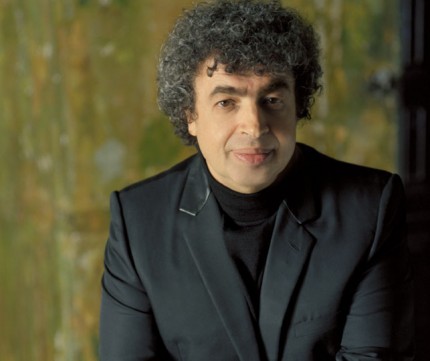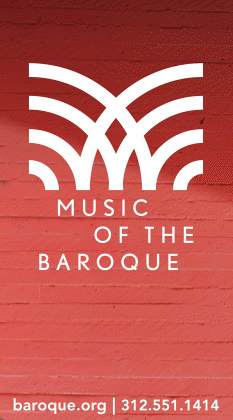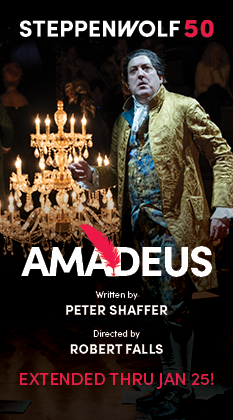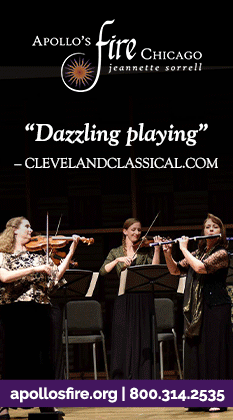Bychkov and CSO serve up a Mahler Third, raucous and sublime

If one wanted to demonstrate how a single musical work can encompass widely varying interpretive stances, one could hardly do better than comparing Thursday night’s performance of Gustav Mahler’s Symphony No. 3 by conductor Semyon Bychkov and the Chicago Symphony Orchestra with its last Orchestra Hall outing.
Those celebrated 2006 performances, led by Bernard Haitink, were subsequently issued on the orchestra’s Resound label to wide acclaim. On Thursday Bychkov’s eruptive, at times raucous take on Mahler’s opus proved a 180 from Haitink’s scrupulous balances, elegant tone, and patient, far-seeing view.
The Third is Mahler’s longest symphony—and remains the longest in the standard repertory—with six movements spanning over 90 minutes scored for huge forces including a massive orchestra, mezzo-soprano soloist and women’s and children’s choruses. The symphony is a sprawling hymn to nature and, eventually, God. As always with Mahler, there are passing shadows in the composer’s characteristic, richly textured mix of malign marches, sardonic juxtapositions and soaring lyricism. Yet ultimately this is one of Mahler’s most optimistic works, culminating in a half-hour finale that is among the composer’s finest inspirations.
From the opening brass fanfare that ushers in summer and this epic work, Bychkov’s direction was boldly projected. The Russian conductor relied on volume and sonic thrust with playing that was hard-toned, at times to the point of being coarse, and one missed the subtly terraced dynamics and tonal refinement of Haitink.
There were also more technical lapses than one often hears. In addition to the weekly high-wire act from the CSO’s principal horn, there were errant entrances, and some surprisingly pitchy violin intonation. Even the rock-solid Chris Martin had an off night with fallible playing in the offstage posthorn solo.
While not the most polished and mellifluous Mahler 3 one will ever hear, Bychkov clearly knows what he is doing in this repertoire—as shown in his Mahler 5 here two years ago—and much of the performance was inspired and even sublime. Bychkov charted the long span of the vast opening movement skillfully, drawing unbridled playing, from the gutsy attacks of the cellos and basses to the powerful—if strident—climaxes, with the madcap whirling coda exhilarating.
The songful second movement minuet went with a delicious lilt, with the ensuing scherzo bumptious and charming. Mezzo Bernarda Fink—in her second consecutive CSO program after last week’s Missa Solemnis—brought steady tone and aching expression to Mahler’s foreboding Nietzsche setting. Bychkov’s segue into the cheerful bell tolling of children’s and women’s voices telling of heavenly joy took us seamlessly into the light.
Yet it was in the concluding slow movement that this performances rose to the heights. Mahler wrote no more beautiful music (including the Fifth Symphony’s Adagietto) than this 25-minute orchestral coda and Bychkov and the orchestra were at their finest here conveying the otherworldly peace and relaxed contentment with great sensitivity.
Several players contributed superb solo moments, including trombonist Jay Friedman, oboist Eugene Izotov and flutist Mathieu Dufour. The women of the CSO Chorus and the young singers of Anima provided effective, pure-toned singing in the fifth movement.
The program will be repeated 1:30 p.m. Friday and 8 p.m. Saturday. cso.org
Posted in Performances





Posted Nov 02, 2012 at 2:59 pm by Dave
I agree with your review. There were plenty of wonderful moments in last night’s performance under Semyon Bychkov, who has become one of my favorite CSO guest conductors. It’s a shame that the horn section, once arguably the best anywhere, is in such disarray under a principal horn player who should have retired at least five years ago. Chris Martin’s mishap in the beautiful posthorn solo last night is an aberration for him and easily forgiven. I just hope Maestro Muti soon finds a way to restore the horn section to a level that matches the magnificence of the rest of the ensemble.
Posted Nov 03, 2012 at 6:38 am by Brian McCarty
Mahler 3 Butchered by CSO
===============================
I desperately hoped to read this headline from you this morning, after the travesty that was Thursday night’s attempted rendition of Mahler’s 3rd Symphony.
I have heard this symphony performed live in Munich, Berlin, Los Angeles, and twice in 2006 with Haitink conducting the CSO. This was none of these – five minutes in, I thought it might be a rehearsal. But it wasn’t even good enough to be a rehearsal.
It sounded as if Bychkov wanted to conduct one way, the the orchestra wanted to play it another. After hearing what Bychkov was trying to do, I believe his interpretation was profoundly wrong. This piece is supposed to be flowing and lyrical, not halting and choppy. All the internal balances were wrong – subdued lines were accentuated and dynamics were odd.
At one point, Robert Chen looked to be glaring at some section in the orchestra, although he otherwise attempted mightily to hold this fiasco together.
Horn David Clevenger – how can he cash his paycheck while providing substandard performances? He’s been missing key entrances for now the third season running – last year’s Tchaikovsky 5 horn solo entrance was missing entirely during at least one performance. But his shortcomings weren’t even close to the off-stage flugelhorn solo. Shocking.
The stellar CSO winds struggled mightily to make their statement while being dragged in the wrong direction. Kudos to the piccolo in the last movement for sticking to her guns.
The audience was also shocking. People were playing with programs, talking – a generally low din was surprising from the usually well-behaved CSO crowd. I noticed one woman with a video camera apparently taking pictures of her little darling sitting with the children’s choir.
And then this audience of hillbillies APPLAUDED. A train wreck.
Posted Nov 03, 2012 at 6:50 am by Tod Verklärung
Excellent review. Any word on the recording plans of the CSO?
Posted Nov 03, 2012 at 10:22 am by Alan D. Strange
I agree entirely with the review and with Dave’s comment. As an ardent disciple of Mahler and Bruckner, I am coming to the point of not wanting to go to CSO concerts when these masters are played because of the poor playing of the principal horn. Is there any relief in sight?
Posted Nov 03, 2012 at 1:32 pm by Tod Verklärung
Before the current principal horn arrived in 1966 the section was at a low ebb. One held one’s breath whenever a solo came up. His assertive, confident, and accurate playing transformed the section. Having been the solution to the section’s problems, the terrible irony of his recent difficulties is that he now is himself the problem.
Posted Nov 03, 2012 at 10:30 pm by Stefan Westerhoff
Well, the review fits the Saturday night performance just as well. I think that Bychkov is not to blame. Especially in the first and the last movement, he had the right ideas, and the playing was strong. Who can blame him for losing focus in the third movement, given that every second, one had to fear that the horn section would falter, which it did again and again. I left the hall with the feeling that this is an orchestra that cannot be trusted with a Mahler symphony anymore.